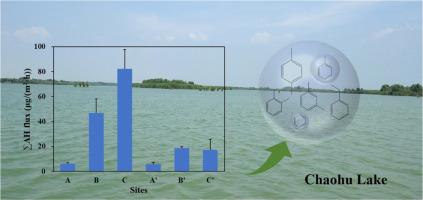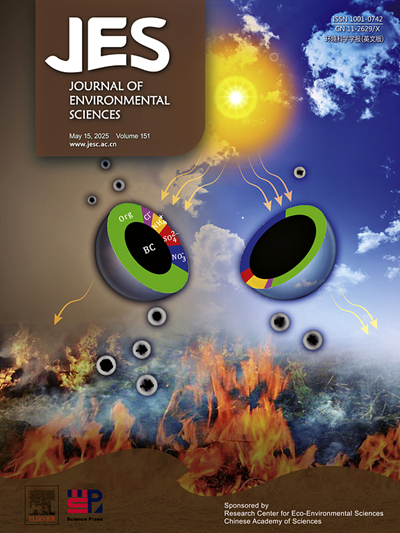Biogenic emission as a potential source of atmospheric aromatic hydrocarbons: Insights from a cyanobacterial bloom-occurring eutrophic lake
Abstract
As important precursors of ozone (O3) and secondary organic aerosol (SOA), reactive aromatic hydrocarbons (AHs) have typically been classified as anthropogenic air pollutants. However, biogenic emission can also be a potential source of atmospheric AHs. Herein, field observations in a eutrophic lake were combined with laboratory incubation experiments to investigate the biogenic AH emission. Field work showed that the water-air fluxes of AHs measured at sites with high cyanobacteria abundance could reach an order of magnitude greater than those at sites with low cyanobacteria abundance, suggesting that cyanobacteria could be the important contributor to measured AHs. Laboratory incubation experiments further confirmed the AH emission of cyanobacteria and revealed that the emission could change significantly over the lifespan of cyanobacteria and varied to their growing conditions. By combining field observations and laboratory incubation experiments, it has been suggested that the emission of different AH species from cyanobacteria could be modulated by variable biogeochemical mechanisms and that the biochemical process of toluene could be different from that of other AHs. This study investigates AH emissions from inland aquatic ecosystem and suggests that biogenic emission could be a potential source of atmospheric AHs.


 求助内容:
求助内容: 应助结果提醒方式:
应助结果提醒方式:


